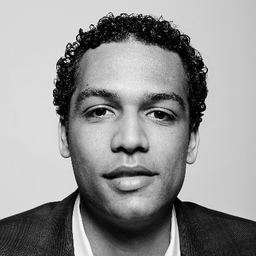
Justin Worland
Senior Correspondent at TIME
Senior correspondent @TIME covering climate change and the intersection of policy, politics and society
Articles
-
6 days ago |
time.com | Justin Worland
The consequences of the increasingly urgent hostilities between Israel and Iran are multifold—humanitarian, geopolitical, and so on. If the situation deepens, it could also have important implications for energy markets and, by extension, climate change and the energy transition. Central to that picture are oil prices. In the past month, oil prices have risen nearly 25% as hostilities have deepened.
-
2 weeks ago |
aol.com | Justin Worland
Green workers install a residential grid-tied solar array on a hillside in Malibu, California, USA. Credit - Universal Images Group via Getty—Peter BennettWhen I had lunch with then-Sunnova CEO John Berger in March 2022, things seemed to be looking up for the residential solar company. In his telling, rising energy bills and the growth of work from home had made consumers more conscious of their electricity consumption.
-
2 weeks ago |
time.com | Justin Worland
Inside JetZero's cavernous 275,000-square-foot hangar at Long Beach Airport in L.A. County, the future of flight takes an unexpected shape. I run my hand along the carbon fiber surface stitched with Kevlar that will form the aircraft's frame, sit in a passenger cabin mockup built inside what would normally be the wing, and walk through a diagram-filled room where engineers are reimagining everything from baggage handling to boarding procedures.
-
3 weeks ago |
time.com | Justin Worland
Troves of in-demand critical minerals sit untouched deep at the bottom of the ocean: nickel, cobalt, and copper, to name a few. With the stroke of a pen in April, President Donald Trump signed an Executive Order to catalyze a “gold rush” in pursuit of those deposits. The value of those minerals could total in the trillions, and the Trump Administration wants American companies to access them in a bid to bolster the economy.
-
3 weeks ago |
yahoo.com | Justin Worland
Deep-sea nodules are a source of critical metals. Mining for them could harm ecosystems. Credit - The National Oceanography Centre and the Trustees of the Natural History Museum, with acknowledgement to the NERC SMARTEX project. Troves of in-demand critical minerals sit untouched deep at the bottom of the ocean: nickel, cobalt, and copper, to name a few. With the stroke of a pen in April, President Donald Trump signed an Executive Order to catalyze a “gold rush” in pursuit of those deposits.
Try JournoFinder For Free
Search and contact over 1M+ journalist profiles, browse 100M+ articles, and unlock powerful PR tools.
Start Your 7-Day Free Trial →Coverage map
X (formerly Twitter)
- Followers
- 11K
- Tweets
- 2K
- DMs Open
- Yes

RT @jsibo: From iron ore to green energy: Billionaire Andrew Forrest is investing $6 billion to transform his mining giant Fortescue into a…

RT @Tzeporah: “I consider it as a prism. Every public policy can be viewed through that prism,” he says. “You can measure public policy by…

RT @petrogustavo: En la revista Time, se habla de mi política de fin a los combustibles fósiles. https://t.co/ySIrUljDVu